One of the first thoughts that usually arise once we start thinking about a certain city is the architecture. The second thought, and quite frequently even before the architecture, is about the city parks.
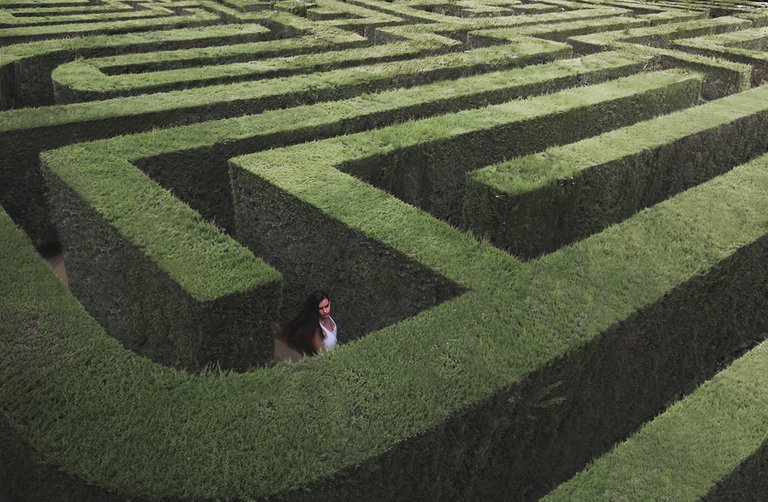
We were very pleased when we found out that Barcelona doesn’t lack in both of these aspects.
There aren’t that many cities in the world where incredibly diverse and wonderful architecture becomes creatively interweaved with the “green” areas that surround it.
Whenever we look at our large world map on the wall and take a glimpse at Spain and Barcelona, we instantly remember a flawlessly clear sunny and hot summer Catalonian afternoon...and the warm breeze that wafts the scent of the nearby sea as we make our way deeper into the second reason why we fell in love with this wonderful city- the parks.
THE PARKS
Parc de la Ciutadella
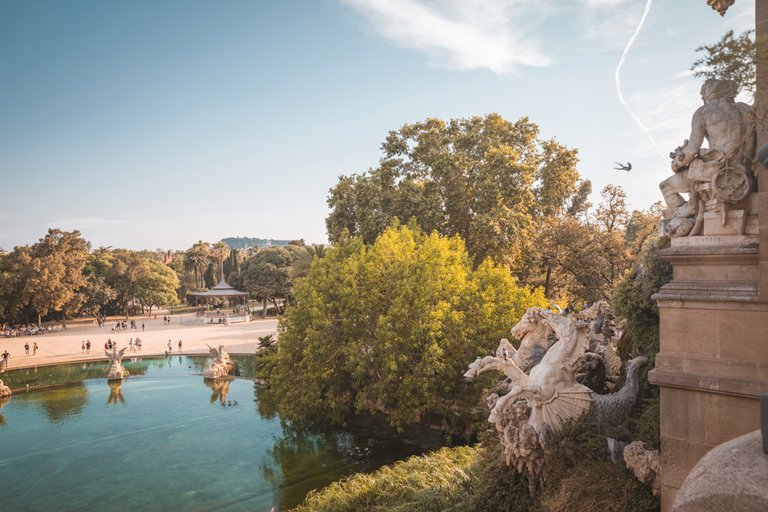
It would be appropriate to begin this story with “Parc de la Ciutadella” as it was the first green area of Barcelona.
This park has a very long and complicated political history because it was initially used as a military citadel built by King Philip V in the 1700s, and it’s purpose was to hold against the rebellious Catalans.
As of 1888. the ex-military area was turned into the actual park which marked the opening of the Universal Exhibition that took place during the same year.
The entrance to the Parc de la Ciutadella is Barcelona’s very own Arc de Triomf and it is as impressive as an entrance can get...
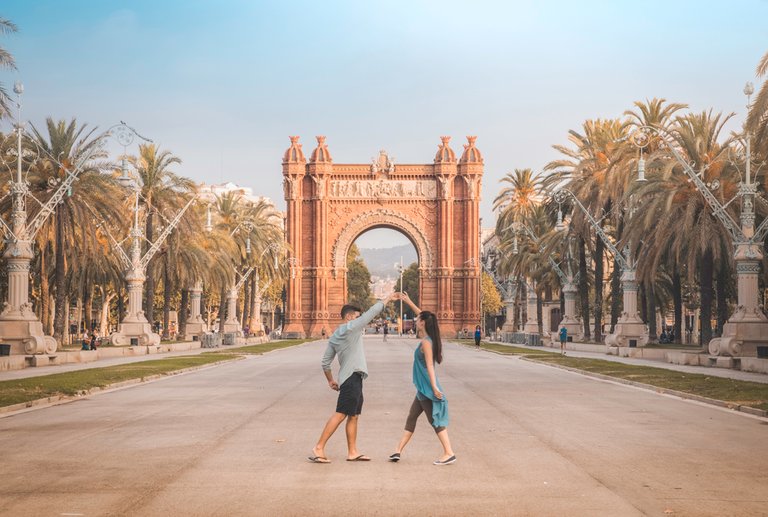 Especially if you're in the mood for dancing :)
Especially if you're in the mood for dancing :)
This park host many interesting and intriguing buildings such as the Natural Science Museum, Castel dels Tres Dragons (the gothic castle which was built for the 1888 Universal Exhibition), The Museum of Modern Art, etc.
Besides the green area the park includes several sand parts, and though its location is practically in the middle of Barcelona, we saw many people sunbathing, and generally relaxing across the entire park.
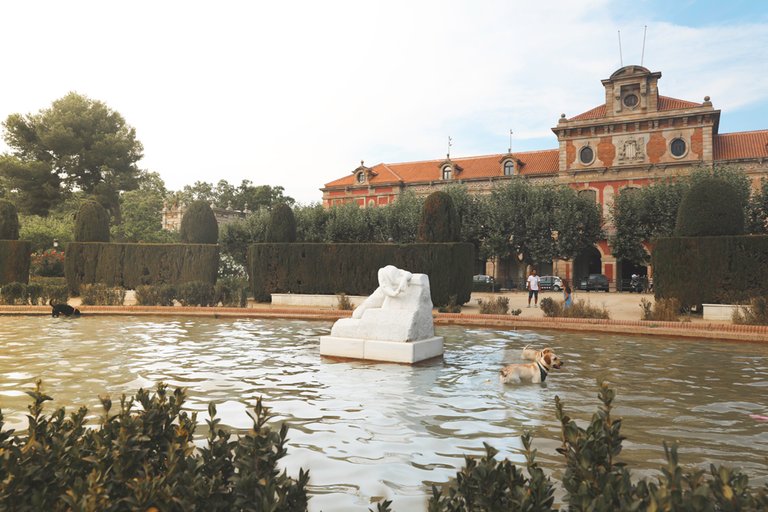
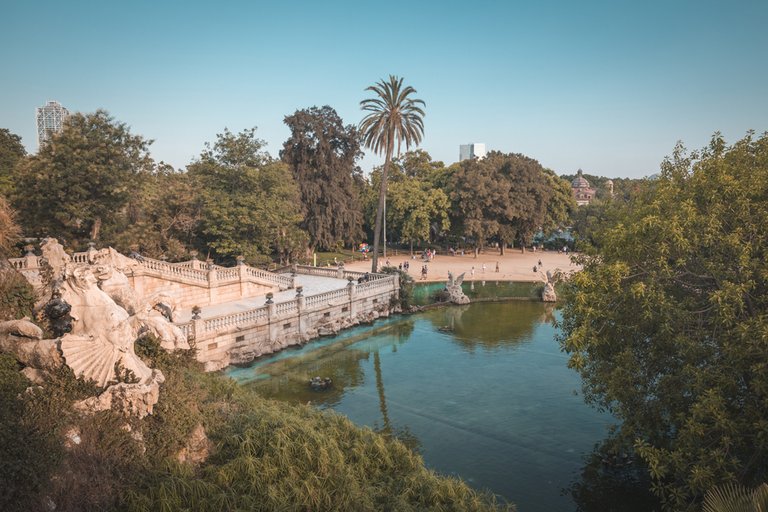
This was the first park that we came across after we came to Barcelona and we remember it leaving a really specific impression.
It felt as if the Mediterranean environment had made its impact and turned this park into the unusual mixture of impressive architectural aesthetics and laid back atmosphere of the tropical beach.
The part of the park that we particularly liked was the Cascada fountain.
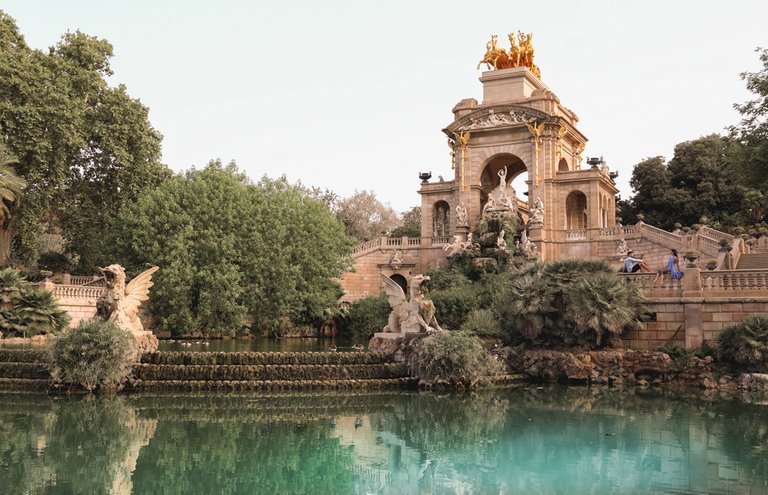
The design of the Cascada fountain was based on the Trevi Fountain in Rome and was constructed for the 1888 exhibition. Its creators were Josep Fontsère and young Antoni Gaudí, who was still a student at that time.

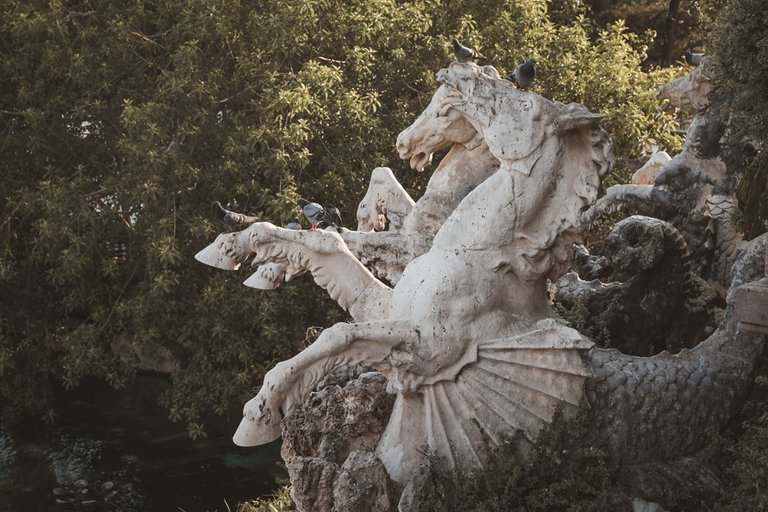
Cherubs and winged horses are there to welcome you as you make your way along the massive steps that lead to a wonderful view point of the entire park...thus making this fountain a perfect place to conclude your visit to Park de la Ciutadella.
Park Güell
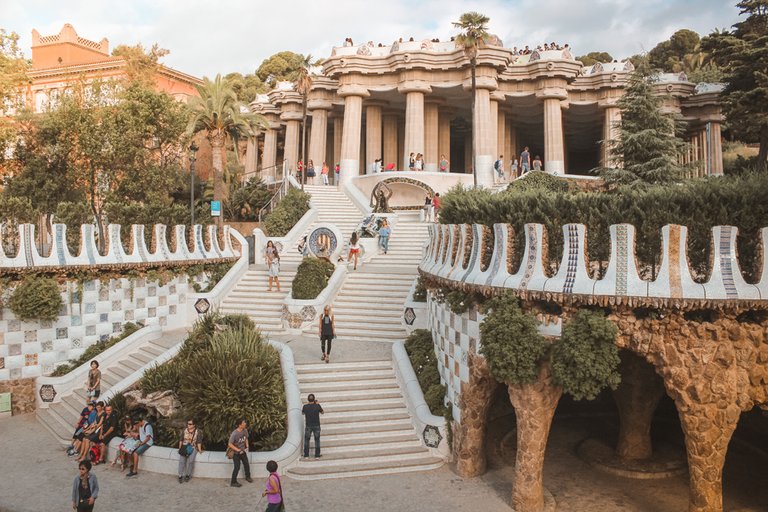
In our previous post about Barcelona’s architecture, we mentioned that all the roads tend to lead to Antoni Gaudí.
It just so happens that this claim includes the parks as well.
Park Güell is a public park designed and created by Eusebi Güell and Antoni Gaudí and it is located on Carmell hill in Barcelona. In 1984. UNESCO declared the park a World Heritage Site.
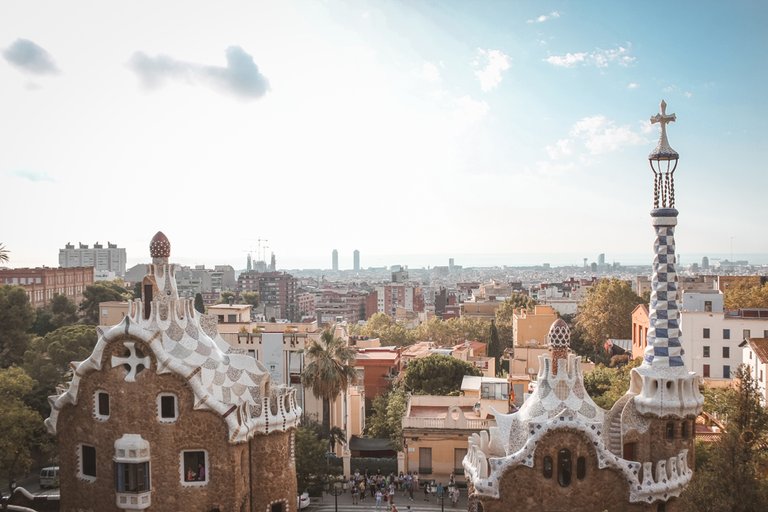 And it's quite a site indeed...
And it's quite a site indeed...
It’s safe ti say that Park Güell perfectly reflects Antoni Gaudí’s creative imagination and his architectural genius.
It is here were he perfected his style which was based on organic and natural forms which eventually lead to the creation of Sagrada Familia.
It’s interesting that Park Güell was initially planed as a luxurious housing site but never became so.
 Wouldn't mind getting a place here...
Wouldn't mind getting a place here...
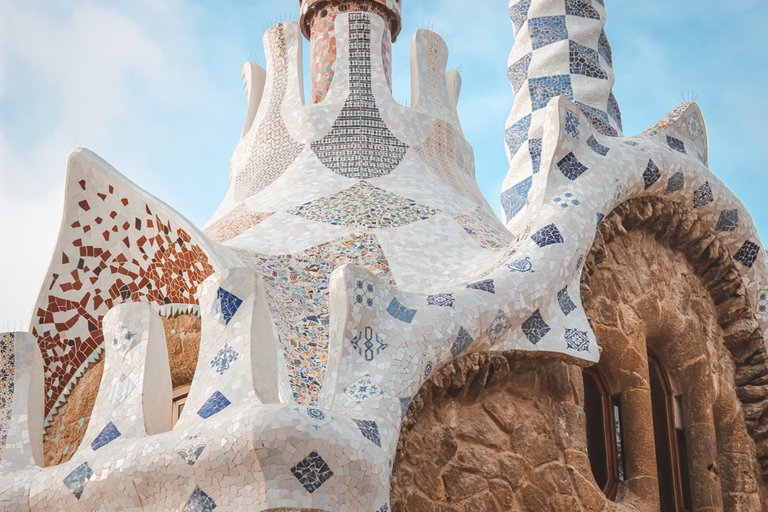

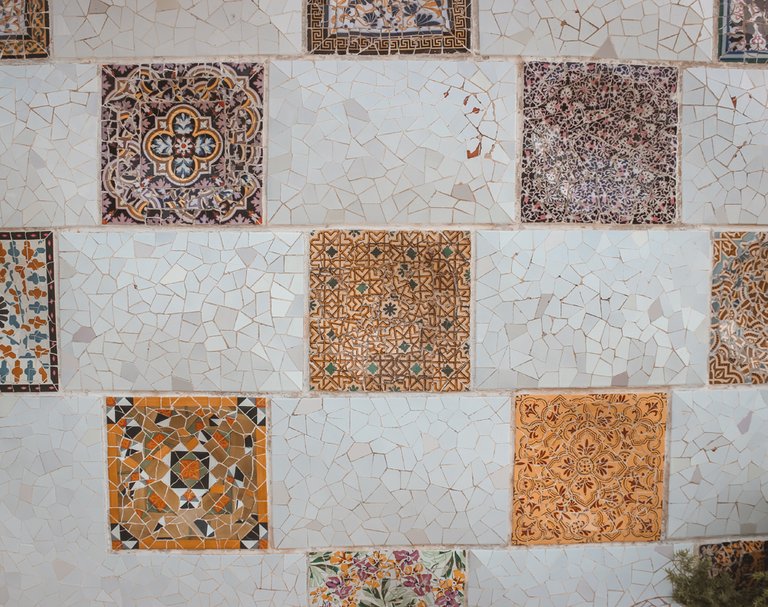
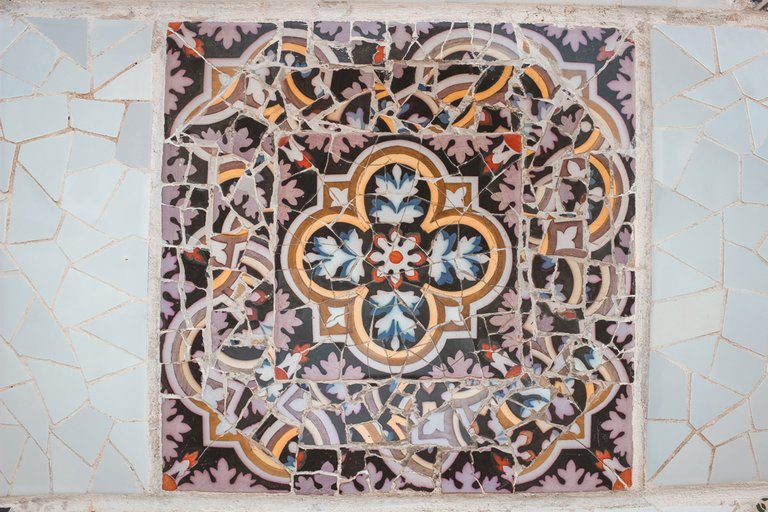
The entire parks overflows with creative and intriguing solutions. The spiral columns, lizards, wave forms, mosaics etc. leave a strong impression that the park is alive and constantly pulsating.
After some time in the park, we felt as if we have entered another dimension.
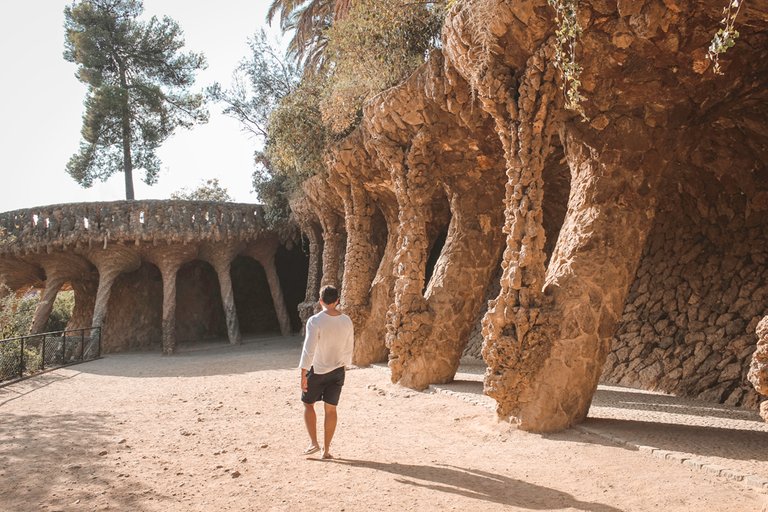

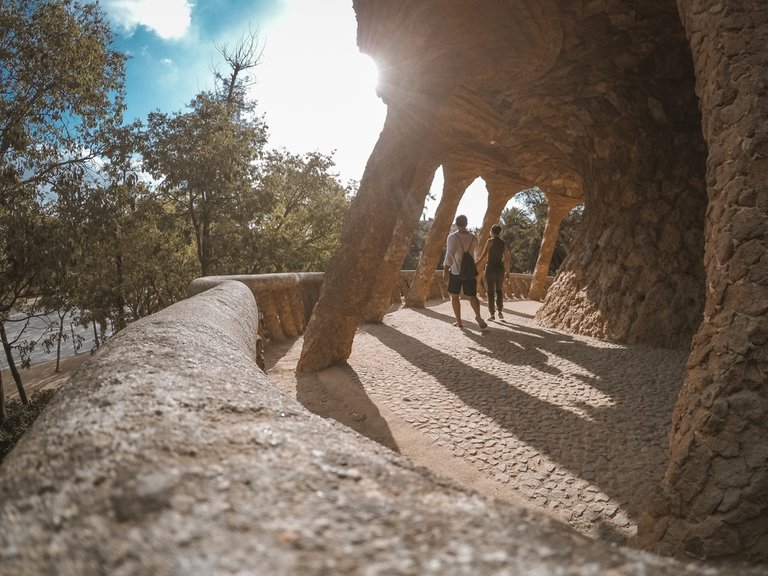
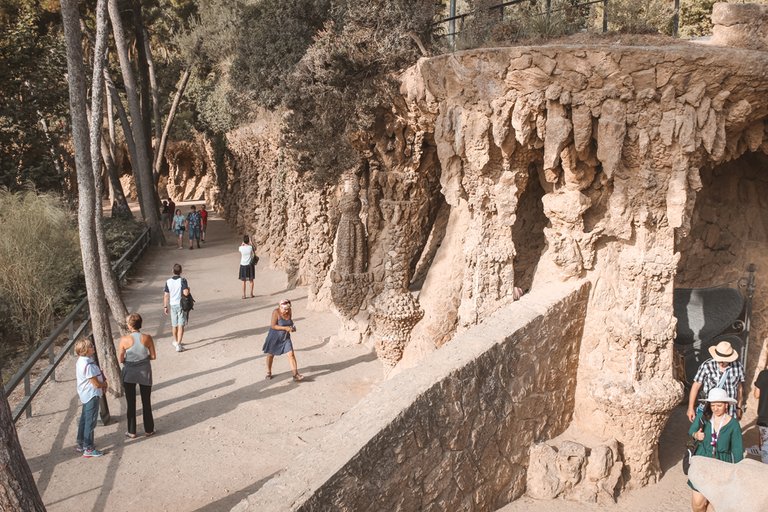
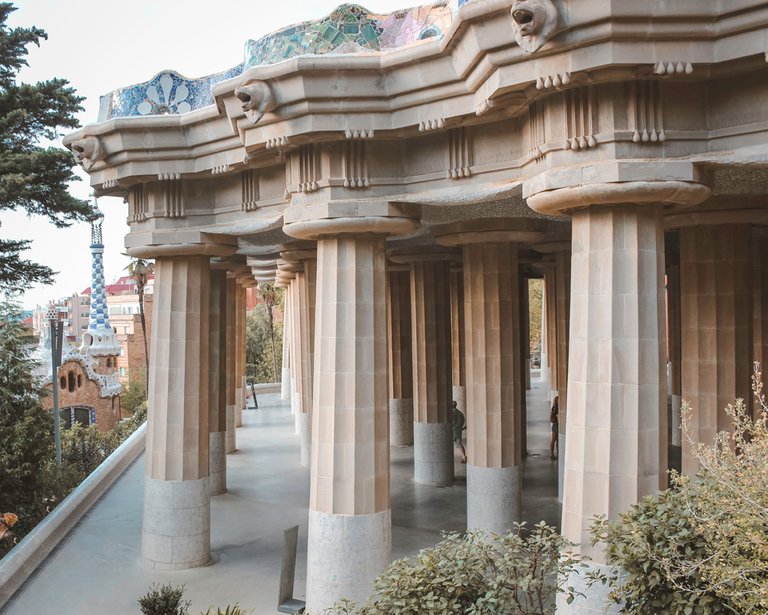
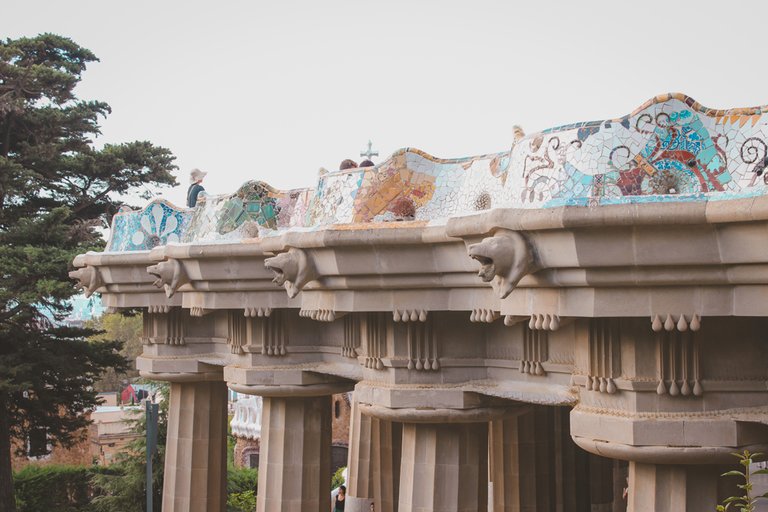
The fact that we adore about parks such as Park Güell is that they constantly evoke (and provoke) the creative feelings of their visitors. These parks and structures offer a different approach in the way of human thinking. They offer a new perspective of solutions which are in correlation with the free flowing natural forms around us.
We would, therefore, greatly recommend Park Güell to any living soul that strives for an natural-urban experience rarely seen anywhere else in our world.
For more info visit the parks official website.
Parc de Montjuïc
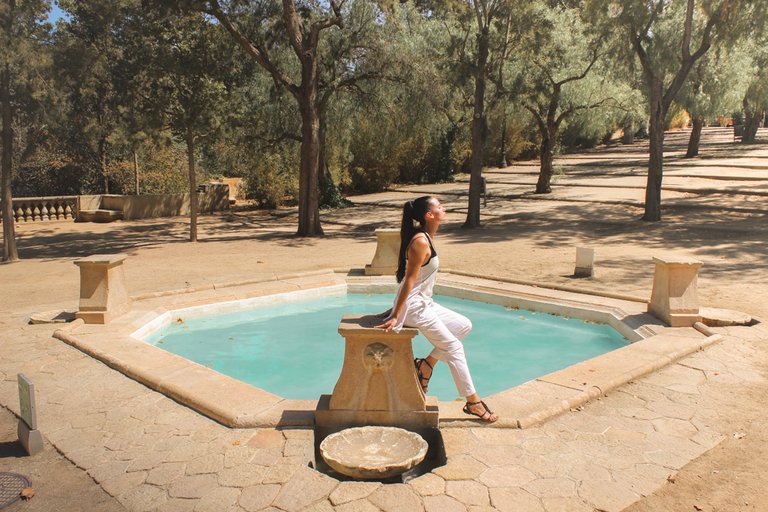
In spite of our effort to separate the architecture and the green areas of Barcelona, we just can’t manage to successfully do so.
These two urban domains of Barcelona are so strictly tied and well connected that it would be somehow degrading to try and ignore one of them as we speak about the other.
For instance, Parc de Montjuïc can be described as a green sea full of many wonderful and impressive architectural gems.
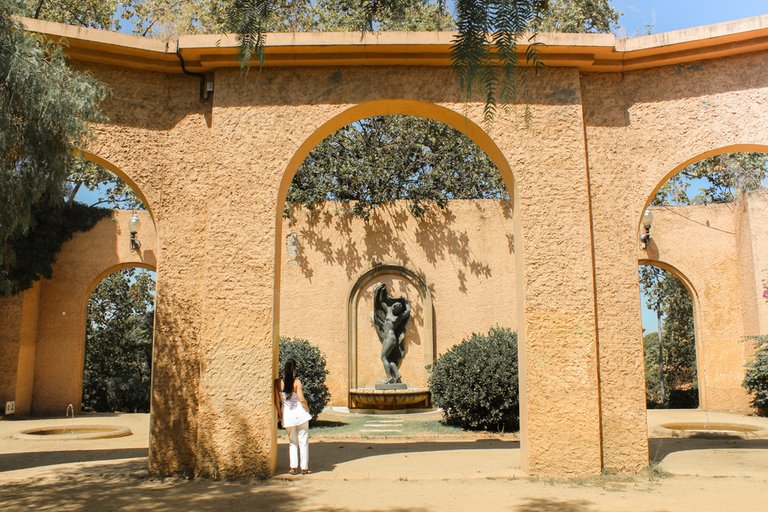

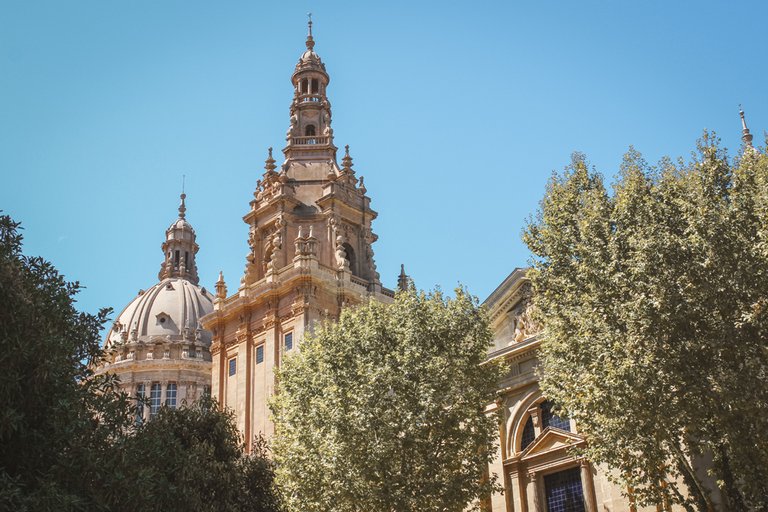
This park covers most of the Montjuïc hill and it can be reached via several ways among which our favorite one by far is the cable car that departs from the lover part of the hill.
We also found out that the park was completely renovated before the Olympic Games that Barcelona hosted in 1992.
It is said that Parc de Montjuïc offers one of the most spectacular views of Barcelona.
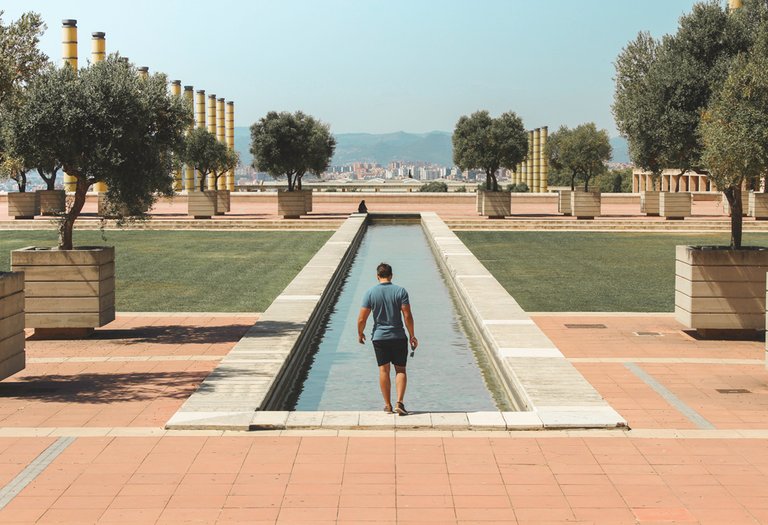 And we couldn't agree more...
And we couldn't agree more...
As we swam through the green sea of the Montjuïc hill we noticed that the park was designed to have different cascade-like levels.
At one point we noticed a large and impressive rooftop arising from the green waves of vegetation...and once we got a bit closer we discovered this:
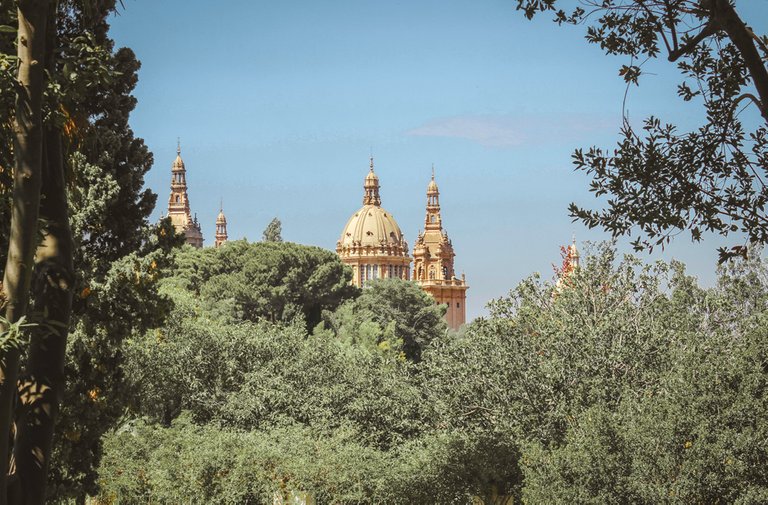 The tip...
The tip...
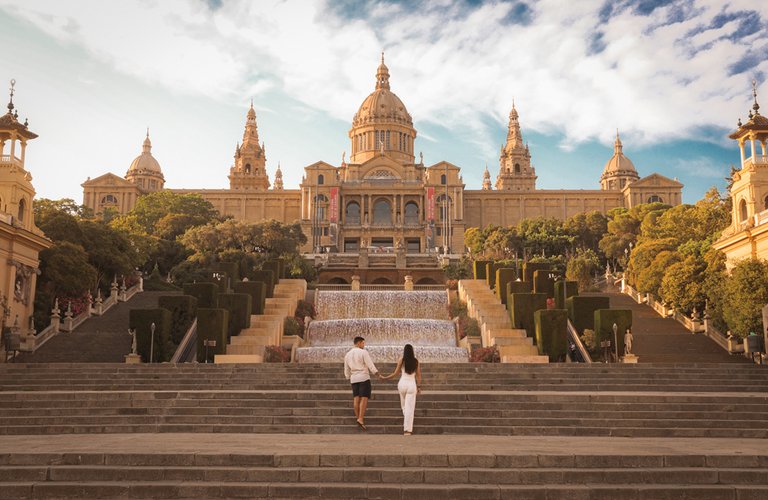 ...of the iceberg!
...of the iceberg!
Splendor and immensity were definitely among the primal and fundamental principles that have preceded the creation of an intriguing city such as Barcelona.
Both of the principles are clearly manifested through The National Museum of Catalonian Art (the two images above)
This impressive object is located on the “Montjuïc” hill and it oversees one of the main squares in Barcelona, Plaça d’Espanya.
A bit further in the green sea of Montjuïc are located two more and completely diverse architectural “islands”.
I’ve written about these true masterpieces of architecture in our previous article about the reasons why we feel in love with Barcelona, so be sure to check it out. 😉
However, what I haven’t mentioned was the Estadi Olímpic Lluís Companys, formerly known as the Estadi Olímpic de Montjuïc.
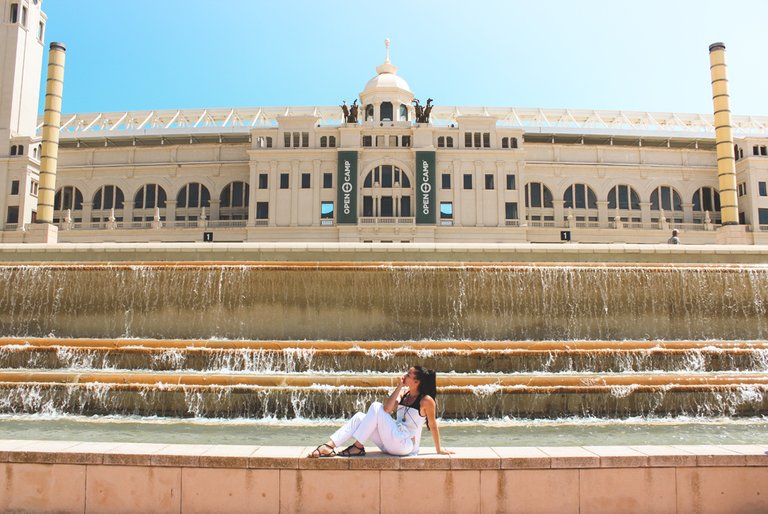
This large stadium was built in 1927 for the 1929 International Exposition. Hovewer, its days of the glory took place during the 1992 Summer Olympics.
There are many more gems to be discovered in the Parc de Montjuïc such as the Fundació Miró, the Museu d'Arqueologia, the Museu Etnològic i de Cultures del Món...and god knows how many more hidden and great buildings that Barcelona seems to have in an infinite amount.
And if you get tired of all the sightseeing, have no worries, as you will easily find many wonderful "nap" spots under the green sea of Parc de Montjuïc.
Parc del Labyrinth d’Horta

Parc del Labyrinth d’Horta is a historical garden located in the Horta-Guinardó district in Barcelona.
This is one of the oldest parks in Barcelona dating back all the way to the 18th-century.
Though it’s location is within the suburbs of Barcelona, this park also doesn’t lack in wonderful pieces of architecture.
However, it hosts one part that makes it rather unique, even among its other great “neighbor” parks.
You’ve probably guessed it from the name - this park has it’s very own labyrinth.
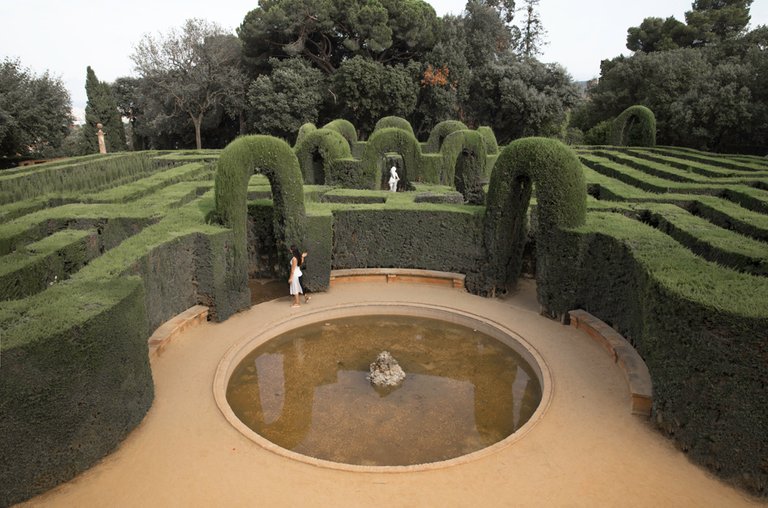 Who dares to enter the maze...
Who dares to enter the maze...
The maze is made up of 750 metres of trimmed cypress trees and it includes many impressive statues inspired by the Greek mythology.
The park consists of three terraces and the maze takes place within the first one.
The second terrace, right over the maze, has two Italian-style pavilions.
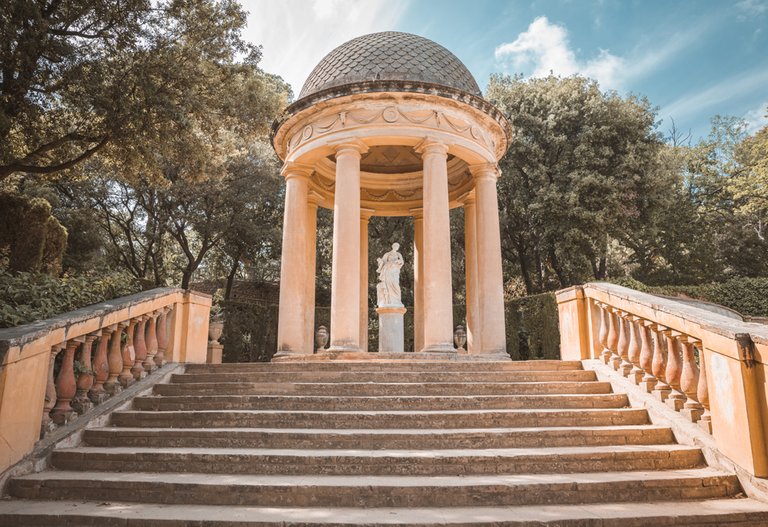
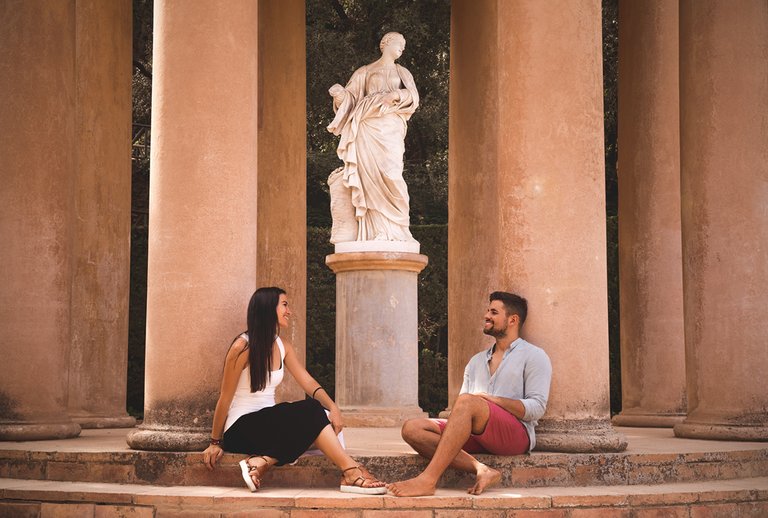
The third terrace has a pavilion dedicated to the three muses.
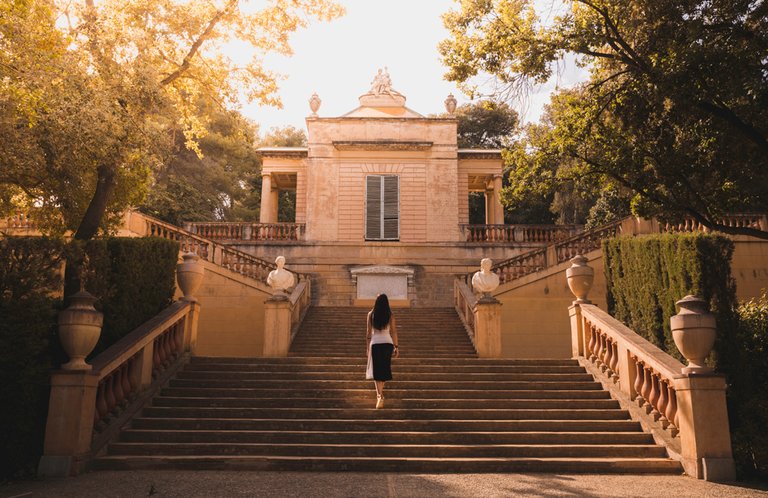
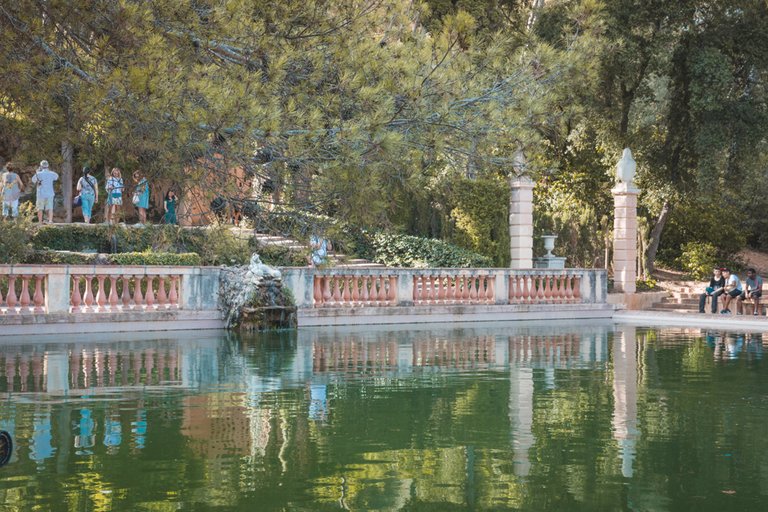
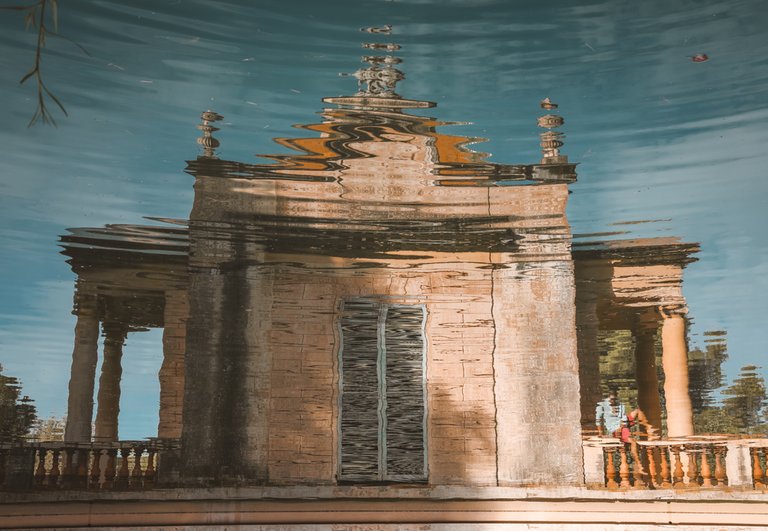
All these terraces are surrounded by thick Mediterranean forest full with many different plant species, that leave a jungle-like impression in certain parts of the park.
The park also includes a romantic garden with flower beds, gazebos, huge trees and even a small waterfall.
We were pleased when we found out that the park has a limitation regarding the number of visitors - no more than 750 people are allowed in the park at the same time. This limitation was introduced primarily in order to preserve the delicate environment and the structures of the area.
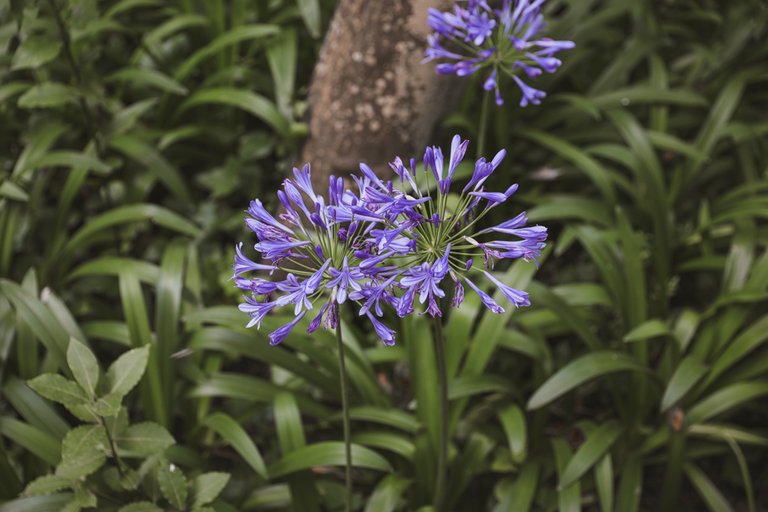
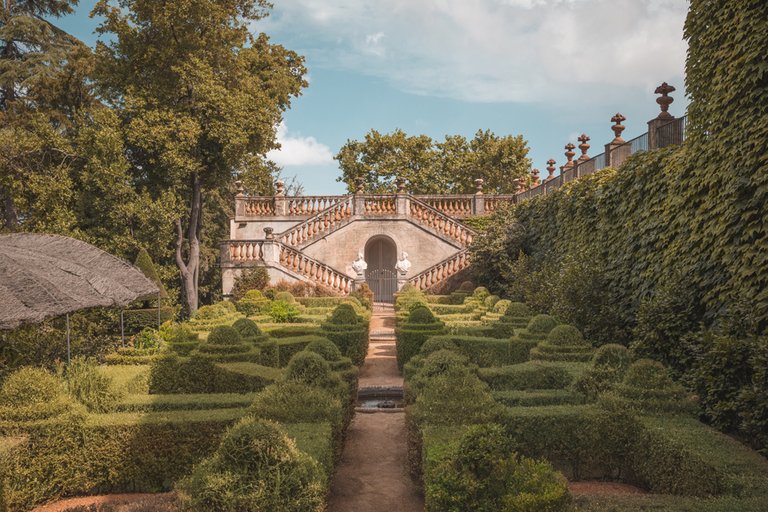
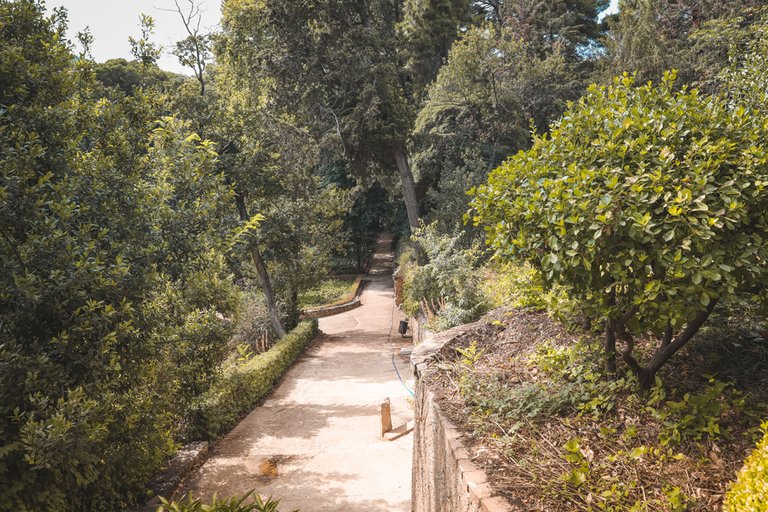
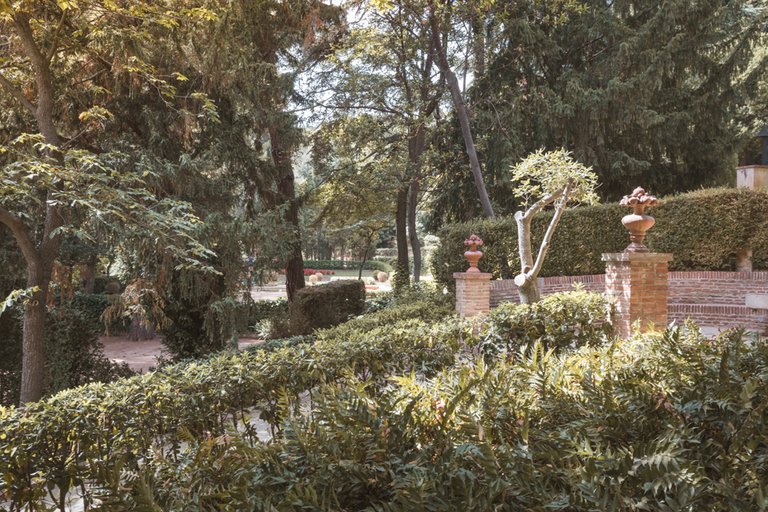
While we were exploring the third terrace of the park we came across an interesting inscription (in Latin) that, in our opinion, rang the bells of truth:
Artis Naturaque Parit Concordia Pulchrum
The translation to English would be "The harmony of art and nature generates beauty"...and Barcelona certainly proves that such harmony is indeed achievable.
See you out there !

All presented content (photography, text, etc.) is my original work.
I hope that you've enjoyed reading this article as much as I have making it.
I really try my best to provide my readers with high quality travel content.
I would more than appreciate all your comments, resteems and upvotes.
Follow me for more great adventures from around the world !
Love,
Damijan
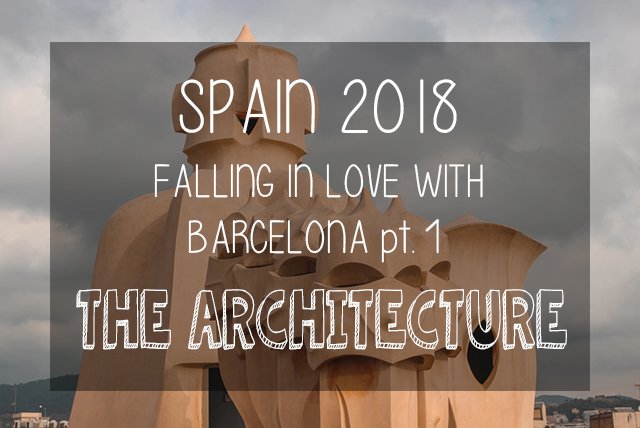

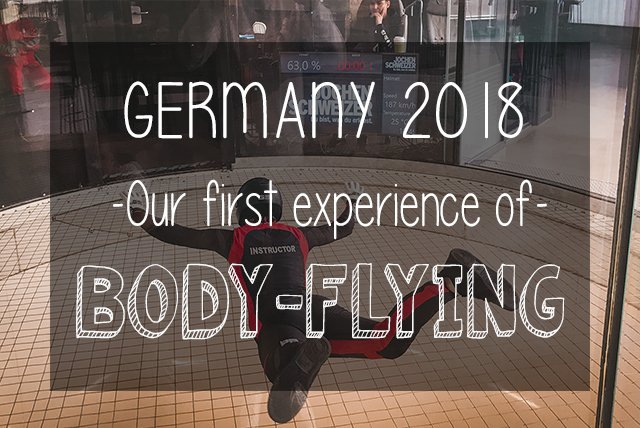
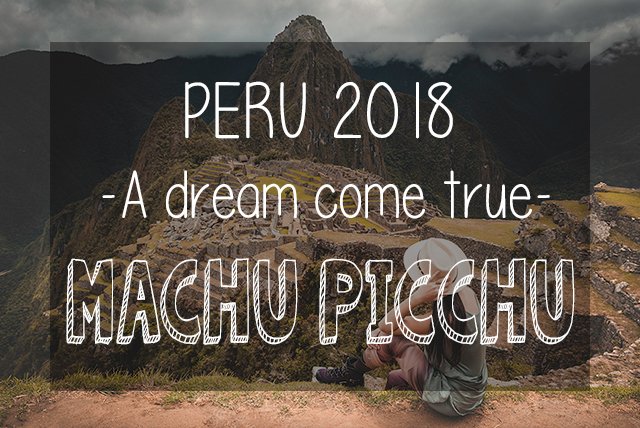
Hiya, just swinging by to let you know that this post made the Honorable mentions list in today's Travel Digest #303. Please drop by to check out all the rest of today's great posts and consider upvoting the Travel Digest if you like what we're doing.
Congratulations @planetus! You received a personal award!
You can view your badges on your Steem Board and compare to others on the Steem Ranking
Do not miss the last post from @steemitboard:
Vote for @Steemitboard as a witness to get one more award and increased upvotes!
Congratulations! Your high quality travel content caught our attention and earned you a reward, in form of an upvote and resteem. Your work really stands out. Your article now has a chance to get curated and featured under the appropriate daily topic of our Travelfeed blog. Thank you for using #travelfeed
Learn more about our travel project on Steemit by clicking on the banner above and join our community on Discord
Congratulations, Your Post Has Been Added To The Steemit Worldmap!
Author link: http://steemitworldmap.com?author=planetus
Post link: http://steemitworldmap.com?post=why-we-fell-in-love-with-barcelona-2-the-parks
Want to have your post on the map too?
Congratulations @planetus! You have completed the following achievement on Steemit and have been rewarded with new badge(s) :
Click on the badge to view your Board of Honor.
If you no longer want to receive notifications, reply to this comment with the word
STOPDo not miss the last post from @steemitboard:
SteemitBoard and the Veterans on Steemit - The First Community Badge.
Congratulations! Your post has been selected as a daily Steemit truffle! It is listed on rank 23 of all contributions awarded today. You can find the TOP DAILY TRUFFLE PICKS HERE.
I upvoted your contribution because to my mind your post is at least 9 SBD worth and should receive 280 votes. It's now up to the lovely Steemit community to make this come true.
I am
TrufflePig, an Artificial Intelligence Bot that helps minnows and content curators using Machine Learning. If you are curious how I select content, you can find an explanation here!Have a nice day and sincerely yours,

TrufflePigGood job on this blog and I love your photography! My personal favouriteL Park Güell. I've been to Barcelona once but it was daytrip from Lloret... so visiting a park was not in the itinerary surprisingly. But I like Gaudí as an architect and the park always looks amazing on pictures.
Congratulations @planetus! You received a personal award!
Click here to view your Board